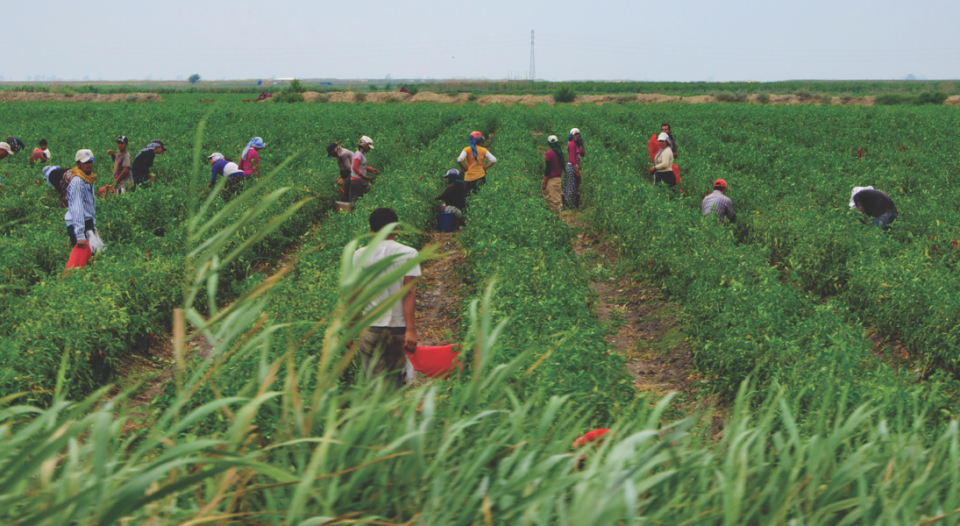These are they who have come out of the great ordeal; they have washed their robes and made them white in the blood of the Lamb (Revelation 7:14).
This verse, assigned as the first lesson for All Saints Sunday, reminds us that a life of faith isn’t devoid of struggles, hardship or death. The good news in this text is that Jesus has claimed those who have “come out of the great ordeal.”
I am a pastor in Lodi, a rural town where many migrant workers from California’s Central Valley live and work. They have been hit hard by the pandemic. As I write this reflection, I’ve already buried a migrant woman who died of COVID-19. More than a dozen migrant families who are part of my congregation have been infected. Most don’t have the privilege or luxury of working from home. They must continue showing up to the vineyards, meat- and fruit-packing facilities, restaurants, construction sites and other essential jobs. This blessed community, which has washed its robes in the blood of the Lamb, is living “the great ordeal.”
Nevertheless, I see their faith, joy and will to live. Although they believe that our society at large doesn’t deem them essential, they are convinced that their work is needed for the sake of the wider community. I’ve had many conversations in which these congregants express pride in their work. They are the blessed ones that Jesus mentions in his Beatitudes: “Blessed are the poor in spirit, for theirs is the kingdom of heaven” (Matthew 5:3).
As I write this reflection, I’ve already buried a migrant woman who died of COVID-19. More than a dozen migrant families who are part of my congregation have been infected.
Some of us who have the privilege of working from home have also experienced the power of death. This pandemic has made evident that we are all fragile human beings who need God to “wipe away every tear” from our eyes (Revelation 7:17). We have lost loved ones, friends, classmates, colleagues, pastors, co-workers and cherished leaders due to COVID-19.
As people of faith, we grieve those who have gone before us, but we also give thanks for their lives and time with us. They are now in the blessed presence of the one in whose blood they have cleansed their robes. But Christ’s blessedness is also for us here and now.
Like the 10 lepers from the Gospel lesson assigned for Thanksgiving Day (Luke 17:11-19), we long for mercy. We need mercy. We ask Jesus to give us the mercy that the world is not able to give us. May our blessedness lead us to work for justice, solidarity and compassion toward the most vulnerable members of our society during this pandemic and thereafter. Amen.






